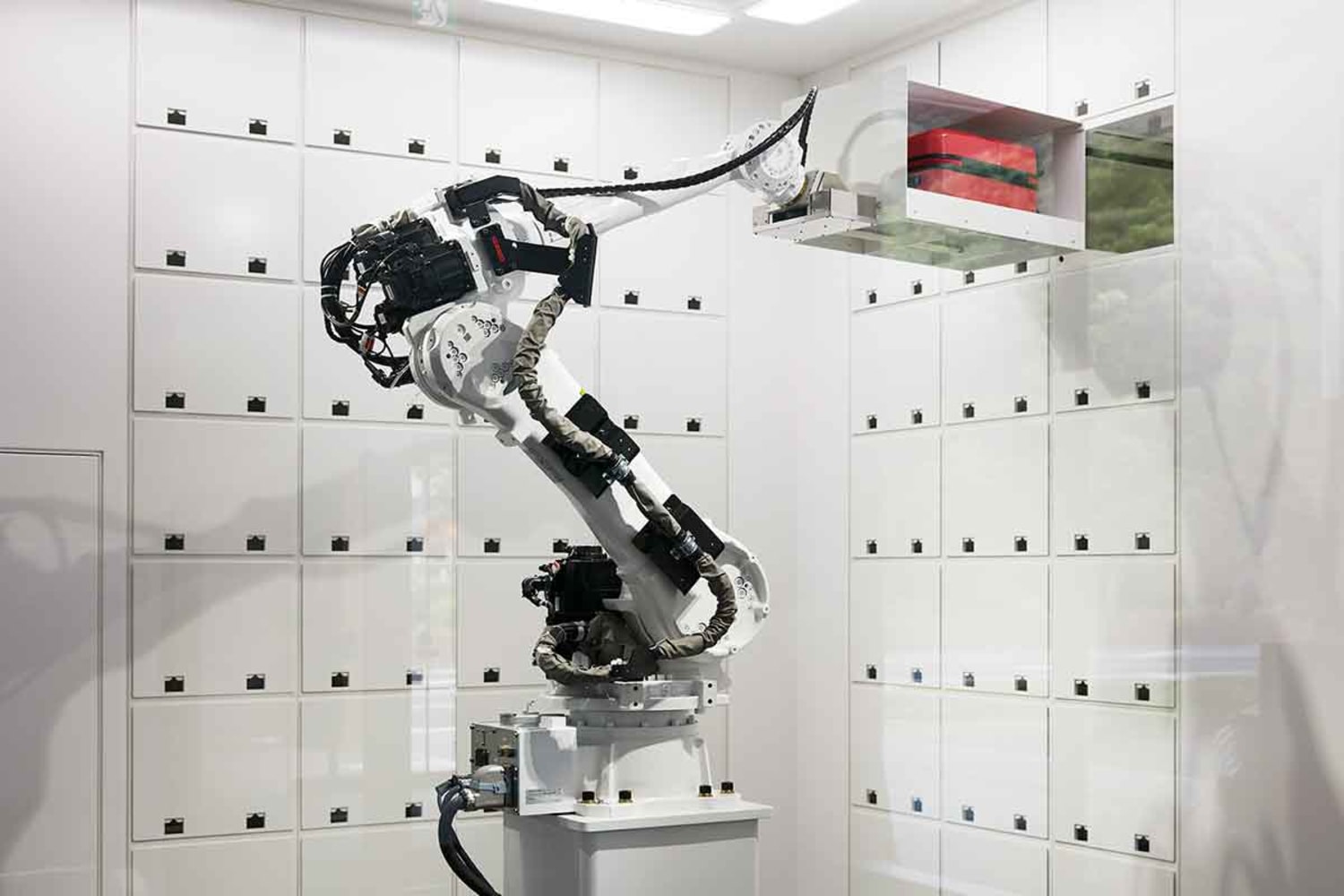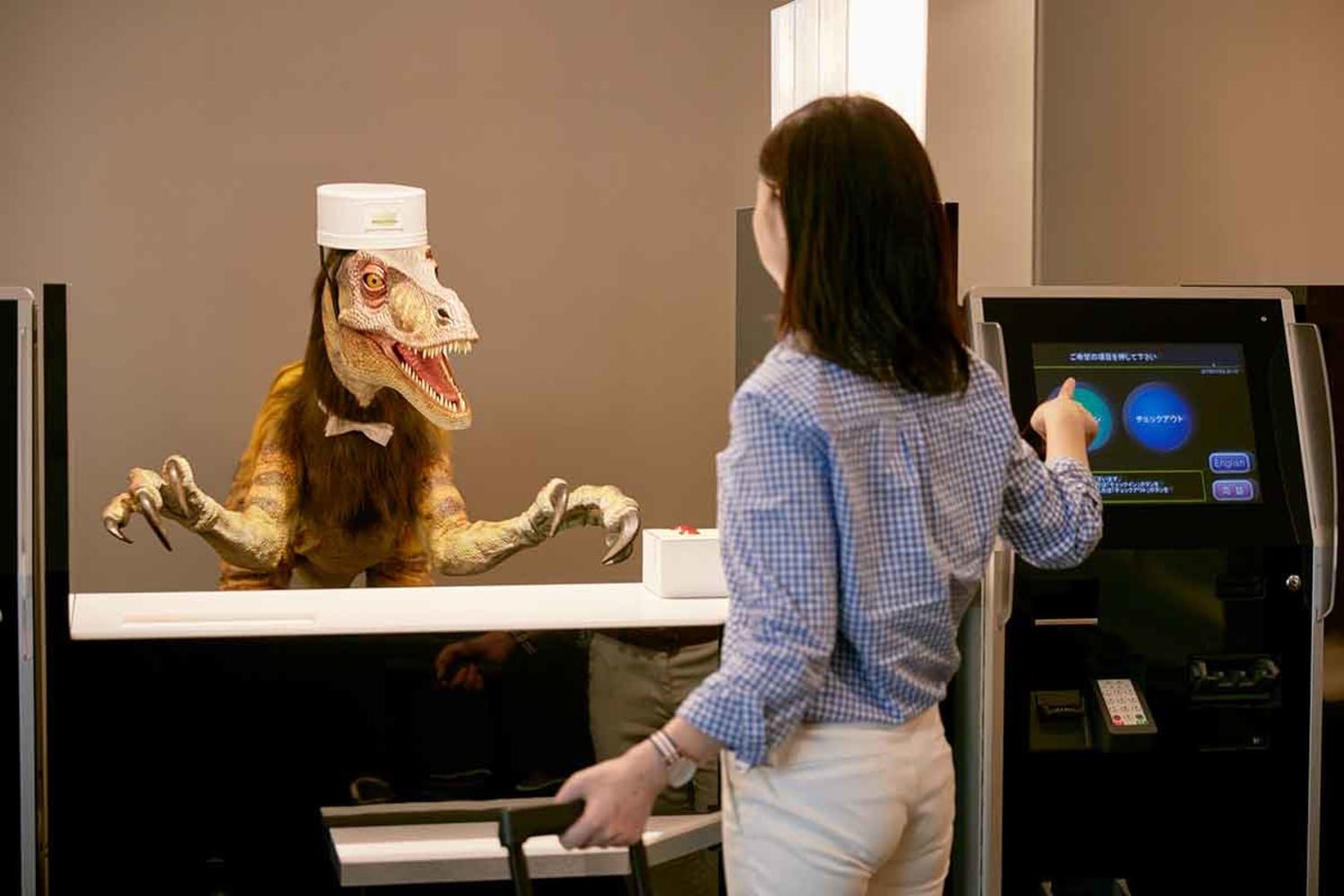Henn na Hotels of Japan is using robots—some resembling humans, others resembling dinosaurs—as front-desk staff, porters and cleaners. It is an audacious move in a business that’s long relied on the human touch.
“We think that the number of people who can work for hotels will be less and less because of the population decline,” Yasuhiko Hoshi, associate director at HIS Hotel Holdings, tells the Innovation Group. “We reached the idea that hotel employees can be replaced by robots.”






